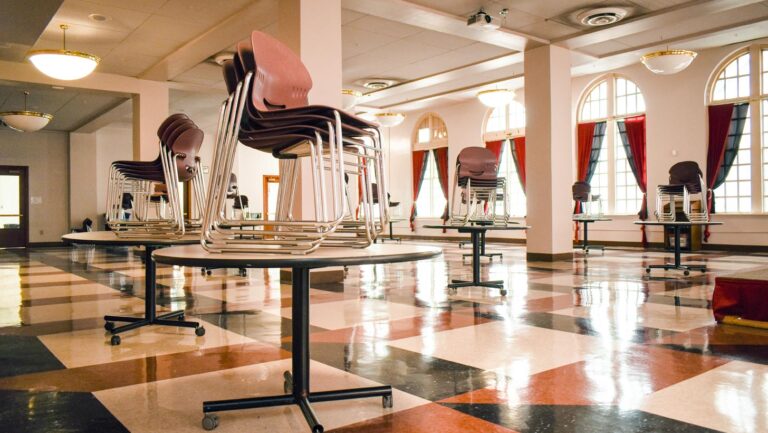Rey Garduño, speaking from his place on the City Council dais, asked, “Why are we decimating libraries?” He characterized the situation as “disheartening.”Bob Kanegis, a storyteller who works in schools and libraries across the U.S., spoke of Albuquerque’s enthusiastic audiences, but he chose a cautionary tale to tell the Council at its Committee of the Whole meeting on April 21. Kanegis described a farmer who decided to condition his horse to go without food by feeding him less and less. It worked perfectly—until the horse suddenly died. Pico Iyer, writing recently in support of library funding initiatives in Los Angeles, put it this way: “Our state and city budgets are in desperate shape, we all know, but to save money by reducing library services and resources is like trying to save a bleeding man by cutting out his heart. Or—if we could reach it—his soul.”Disheartening indeed.Eight library positions, according to the Mayor’s Office, the dollar equivalent of $369,162.00, are on the table in this year’s deliberations. (The jobs went unfilled last year due to the hiring freeze, so they don’t have people in them to be let go.) But this is a 25 percent reduction in staff since 2007. Meanwhile, the city’s total full-time personnel across all departments has been reduced by only 8 percent over the same period, according to Support Albuquerque / Bernalillo County Libraries. “But I support the library!” you cry. “I always vote for the bonds.”Yet the General Obligation Bond funds only pay for materials, all automation (hardware and software), and building and renovation projects. Daily operations—salaries, utilities, supplies and repairs for 14 of the 17 libraries—are paid out of the City of Albuquerque General Fund. (Daily operations for the other three are paid out of the Bernalillo County General Fund.) During this time of economic downturn, library usage has risen dramatically and not just in Albuquerque. Twenty percent of Americans—more than twice the unemployment rate—have suffered job loss or wage cuts in the recession. Many of these Americans are making use of the library more frequently and find greater value with both the library and the assistance from the librarian, according to the report “Perceptions of Libraries, 2010: Context and Community,” released in January . Many people have had to give up their Internet connection at home. Job hunters turn to the library to search for jobs, fill out online applications and learn new computer skills.Some unemployed people have gone back to school locally or through distance degree programs. They’re seeking help from librarians as they do academic research or retool for 21 st -century job skills. Libraries, long known as “the poor person’s university,” are uniquely equipped to support informal, lifelong learning.Families check out DVDs for free movie nights at home. They attend early literacy story times, concerts, craft workshops and a galaxy of other free programs. Children do research for their science projects and school reports, while finding time to explore their passions. Librarians work closely with schools and day cares to support literacy and to prevent summer reading loss. Libraries also serve as tutoring centers, providing safe public spaces for tutors to meet with their students.Librarians learn in graduate school how to guide others into the vast inventory of human knowledge through a bewildering proliferation of types of literature and information sources—the basis of modern education. They can do this for all age levels and at all educational and literacy levels—from preschool to grad school. Their profession has instilled in them core values of free access to information, confidentiality and privacy, democracy, diversity, education and lifelong learning, intellectual freedom, preservation, the public good, professionalism, service, and social responsibility. Hanging around with librarians in various branches (including my wife’s), I have readily observed that, whether intentional or not, librarians are being replaced by low-cost labor. It seems that a series of short-term fixes going back a decade have become a permanent condition. To avoid cutting back on branch hours, people are moved over from other city departments, and temporary staff are hired to plug holes. Beatriz Rivera is the director of the Cultural Services Department. She said at that same Committee of the Whole meeting that 84 library employees are temps. With the eight positions cut, there will be 111. A shrinking number of librarians have been working to train others to cover simpler chores. Meanwhile, what librarians can really do is suffering, and the stress in increasing. The Council will discuss the budget on Monday, May 16. Citizens can weigh in during the public comment portion of the meeting. The budget must be adopted before May 30. If anyone wants to send a comment to their councilors, it needs to be sooner rather than later. Find your councilor’s phone number and email address at cabq.gov/council/councilors.Is there a guiding vision for what kind of city we want to live in? As the future unfolds, the 21 st -century library will play a crucial role in the information age economy. Can we afford to cut that?
Stuart Heady is a writer who has been married to a librarian for more than two decades.
City Council meeting
Monday, May 16, 5 p.m.
Vincent E. Griego chambers (basement of City Hall)
1 Civic Plaza NW
cabq.gov/council






